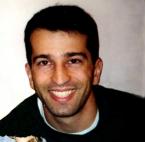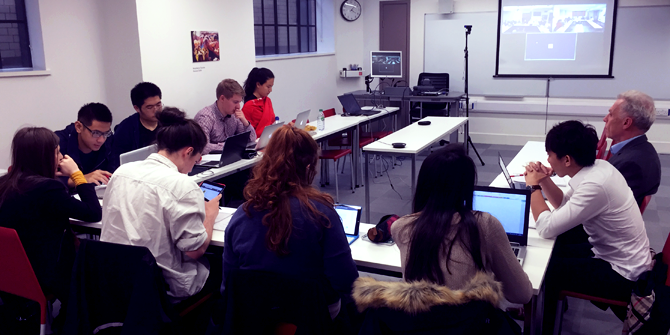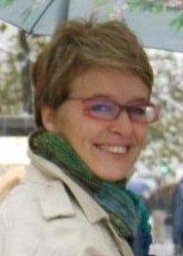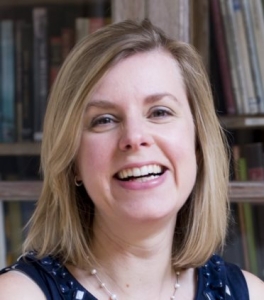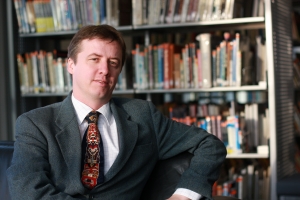Embedding Student-Produced Videos in Courses: Why and How?
This academic year, LTI funded two projects to integrate student-produced videos in courses through their LTI Grant scheme. Outcomes and findings from their evaluation provide some interesting reflections on how they can be used to bring added value to the learning – and teaching!- experience.
The Projects
Using Film in Urban Planning Analysis – Nancy Holman, Geography and Environment
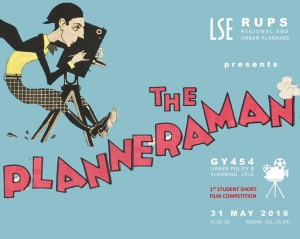 As part of the Urban Policy and Planning course, students produce written work alongside a group presentation and a short interpretive film of neighbourhood fieldwork. Film-making started two years ago with students using their own devices. Last year they were helped by an LSE alumnus who is now a filmmaker to better understand the process of storytelling and how to use the equipment. This year, Nancy applied for DSLR kits to improve the quality of the work produced. An evening screening of the 8 short films produced by the project groups was also organised at the LSE, at the end of which a panel of ethnographers and filmmakers judged the films and awarded three prizes: Best Overall Film, Best Cinematography and Judges Choice.
As part of the Urban Policy and Planning course, students produce written work alongside a group presentation and a short interpretive film of neighbourhood fieldwork. Film-making started two years ago with students using their own devices. Last year they were helped by an LSE alumnus who is now a filmmaker to better understand the process of storytelling and how to use the equipment. This year, Nancy applied for DSLR kits to improve the quality of the work produced. An evening screening of the 8 short films produced by the project groups was also organised at the LSE, at the end of which a panel of ethnographers and filmmakers judged the films and awarded three prizes: Best Overall Film, Best Cinematography and Judges Choice.
Narrating the Death (and Life?) of Multiculturalism – Jennifer Jackson-Preece, European Institute
Jennifer wanted to “enliven the end of term debate on multiculturalism” in her Identity, Community and the ‘Problem’ of Minorities course by replacing group presentations with short films narrating the students’ take on the theme. Instructor videos were made and presented during seminars and resources on making short documentaries were made available on the course’s Moodle page. Students then worked in groups for three weeks to produce their short films. The videos were screened during the last session of the course and were followed by a debate.
Reflections
Why videos?
In the Geography project, the combination of written work and film allowed students to think about spaces both on paper and visually, which according to Nancy is ” a core transferable skill our students need to develop”. She also believes that the video exercise had a “knock on benefit” on students’ summative essays, which she observed were clearer and more thoughtful.
This is what she highlighted in the description of the project for students:

In the European Institute project, the resulting videos were used as a starter for a class debate. Videos were favoured in place of the usual presentations as Jennifer wanted students to approach the end of term presentations “from a fresh perspective that facilitates greater creativity and ownership of ideas“
In both cases video production have been a good way of engaging student with the course and material and resulted in a final product that can be used as a basis for discussion or examples and inspiration for the future cohorts.
“It would also enable student cohorts on EU 458 to ‘speak’ to each other across time through the creation of a permanent film archive on the EU 458 Moodle page” – Jennifer Jackson-Preece
They are also easy to be shared and presented to the wider institution and community. Students from the Urban Planning group attended the JustSpace conference on opportunity areas where they showed their films.
Students also got to develop useful transferable skills in the process: managing a group project, collecting/gathering/presenting information, video production and editing to name a few.
Embedding video-production into the course
Nancy’s project was seen as a way to “further embed […] practical experiences [walks, fieldtrips] within the programme” while it would “enable students to gain a different/complementary perspective on the concept of narrative” for Jennifer. It was thus important for both to integrate video production as (part of) a final task towards which students worked during the course instead of as a stand alone activity.
 As highlighted in the description of the project, video production was gradually introduced in the Geography course. Students received the help from a professional filmmaker and were able to familiarise themselves with the equipment during a trip to Manchester in the first part of the year.
As highlighted in the description of the project, video production was gradually introduced in the Geography course. Students received the help from a professional filmmaker and were able to familiarise themselves with the equipment during a trip to Manchester in the first part of the year.
In Jennifer’s project, students received training in video-making face to face during seminars and through resources made available on Moodle.
Students were also made aware of the various ethical, safety and copyright considerations when filming, interviewing and using material other than theirs.
<= Resources on video production made available to EU458 students on Moodle
In terms of assessment, even though the video production exercise was formative for both projects, students received feedback on their work. Geography students received feedback on their overall presentation that included comments on the style and overall message of their video. Students from the European Institute course were given a template of the feedback form to be aware of the assessment criteria when producing their videos. They included design (style and organisation, creativity) and message (content, quality, overall impression).
Next year group videos will count as 50% of the EU458 summative assessment and adjustments will be made to the course to support this.
Interested in using student-produced content in your teaching?
Have a look at the past Students as Producers projects in our LTIG Grant Winners section or get in touch with us!
Read about LSE Innovator William Callahan‘s successful implementation of student-produced videos in his IR318 Visual International Politics Course.


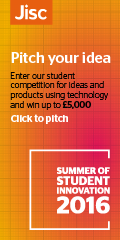
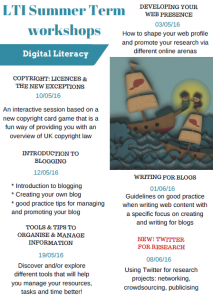
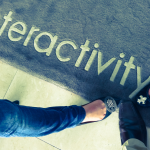 Gustav Meibauer and Andreas Aagaard Nohr, Department of International Relations – Development of PowerPoint-Based Simulation Games for Use in Undergraduate Teaching
Gustav Meibauer and Andreas Aagaard Nohr, Department of International Relations – Development of PowerPoint-Based Simulation Games for Use in Undergraduate Teaching
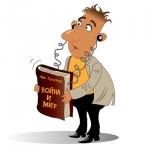 Olga Sobolev, Language Centre – Language Immersion in a Self-Study Mode: Revision e-Course
Olga Sobolev, Language Centre – Language Immersion in a Self-Study Mode: Revision e-Course Tobias Pester, Department of International History – Sustainable Autorship with Academic Markdown
Tobias Pester, Department of International History – Sustainable Autorship with Academic Markdown Susan Scott, Department of Management – Using Digital Innovation to Curate a Living History of Uber and Uberisation
Susan Scott, Department of Management – Using Digital Innovation to Curate a Living History of Uber and Uberisation
 Jennifer Jackson-Preece, European Institute – Narrating the Death (and Life?) of Multiculturalism
Jennifer Jackson-Preece, European Institute – Narrating the Death (and Life?) of Multiculturalism